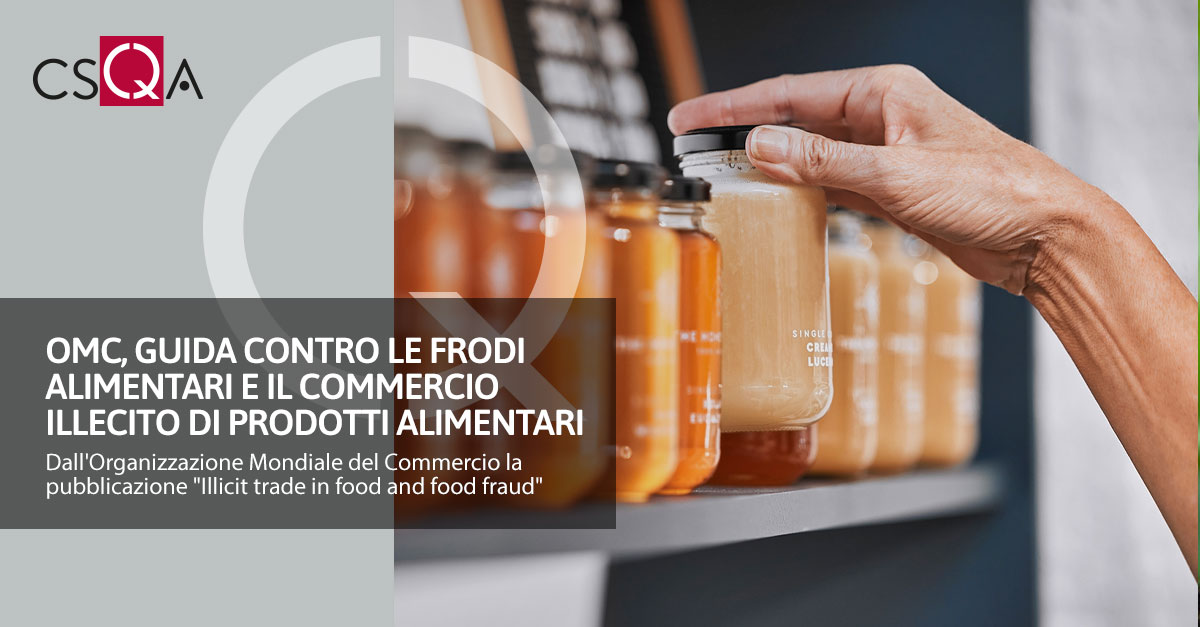
A recent World Trade Organization (WTO) publication, written in collaboration with the Food and Agriculture Organization of the United Nations ( FAO ), the non-profit food safety organization SSAFE , the International Seed Federation ( ISF ) and other experts on food safety and food crime across the supply chain, explores the challenges of combating food fraud and illegal practices in the food trade .
The publication "Illicit trade in food and food fraud" also explains the WTO regulation and the role it can play in the fight against food fraud and illicit trade in food products.
In the publication, the WTO describes illicit food trade and food fraud as "the buying and selling of products to eat, drink or grow that are not what they claim to be; that do not comply with health and safety regulations other type (for example, on quality); and which are smuggled or otherwise produced or marketed outside the framework of the legitimate market."
Illicit food trade and food fraud inflict considerable damage on international trade and public health.
The WTO rules contain agreements that together create a legal framework for international food trade, helping to combat illicit trade and fraud.
The publication identifies several areas where improvements could be made to deter criminals from committing illegal trade or food fraud, such as:
-
Reduce import and export restrictions. Smuggling of agricultural products is driven by a disparity between the price of a good at the origin and destination, which may include price differentials resulting from government subsidies. Ongoing agricultural negotiations within the WTO aim to simplify tariff structures, reduce excessively high tariffs and trade-distorting subsidies, and address import and export restrictions, with the aim of reducing incentives for smuggling and illegal trade.
-
Enact modern food safety legislation. Holistic regulations on the detection, prevention, mitigation and control of food fraud can reduce the scope for fraudsters.
-
Conduct timely and thorough investigations . Criminal investigations identify illicit actors, uncover fraud and expose public health risks. Customs authorities have a key role to play.
-
Public-private collaboration and international cooperation. Collaboration between stakeholders and the international community is necessary to design preventative solutions to food fraud and illegal food trade. Prevention is more cost-effective and protects consumers than reacting to illegal trade and fraud after it has occurred.
WTO rules of particular importance to food safety are the "Agreement on the Application of Sanitary and Phytosanitary Measures" , which allows WTO members to regulate food imports based on science and food assessment techniques. risk, and the “Agreement on Technical Barriers to Trade” , which allows members to address deceptive practices.
Other relevant WTO agreements covered in the publication include the "Agreement on Trade Facilitation" , which could help members eliminate overly cumbersome customs procedures and border bureaucracy that present opportunities for exploitation.
Furthermore, the "Agreement on Trade-Related Aspects of Intellectual Property Rights" can be useful to members in the fight against counterfeiting of food and beverages.
The "Agreement on Fisheries Subsidies" also prohibits support for illegal, unreported and unregulated (IUU) fishing; subsidies for fishing for overexploited stocks; subsidies for unregulated high seas fishing. (Source: https://www.food-safety.com /)